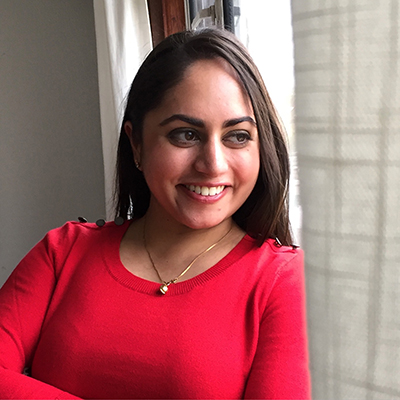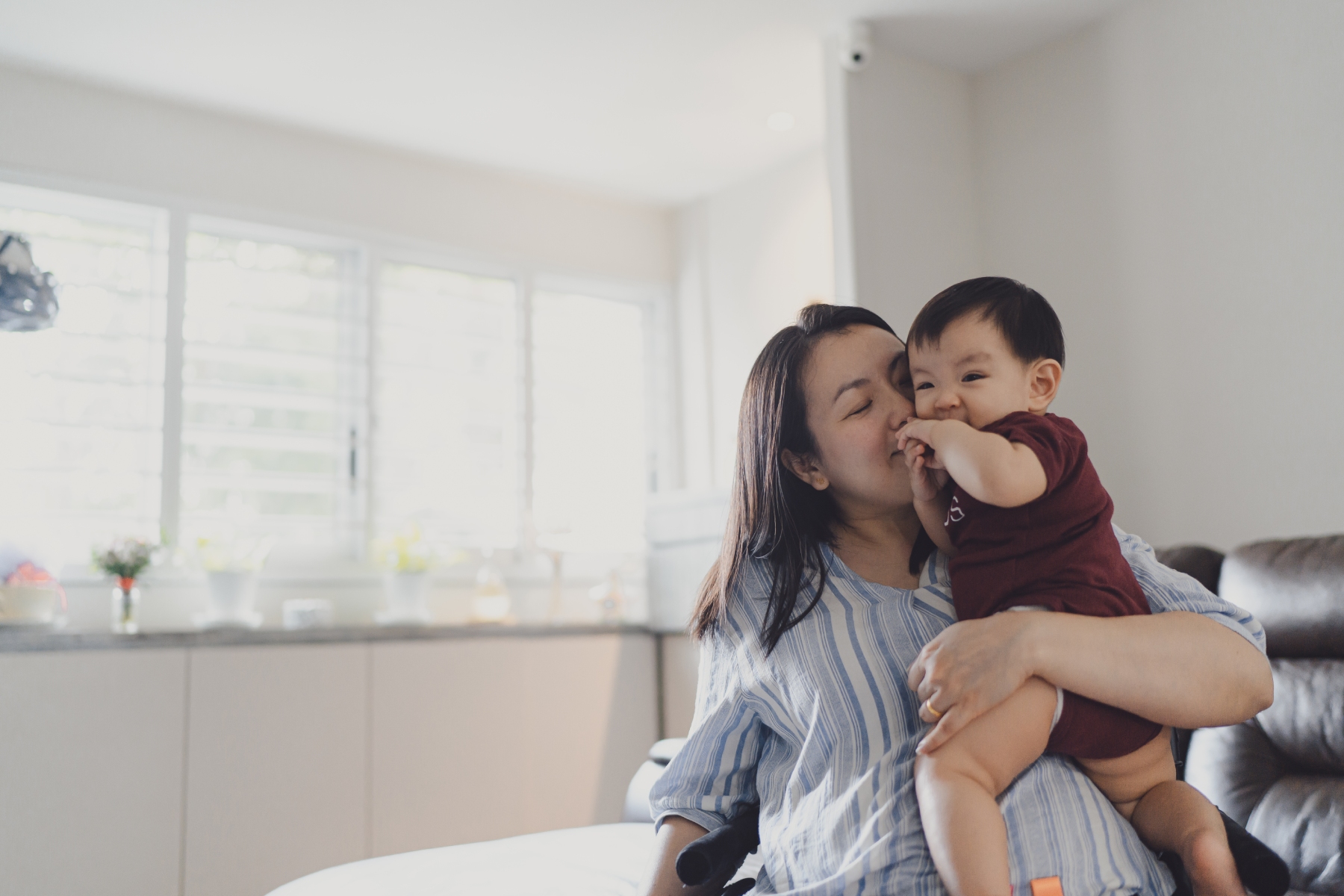Thanks to its superb education system, Singapore is a popular destination for expats with families – but what can you do when your children are too young for school? Luckily, the Lion City has a wealth of childcare options available.
Traditionally, private amahs or domestic helpers have been the go-to for childcare in Singapore. However, expats have various options like daycares, nannies, or babysitters. For instance, a daycare is a good choice if you want your children to build social skills and learn a local language like Mandarin. Alternatively, for occasional babysitting needs, there are flexible services available.
Whatever kind of childcare you’re looking for, you’ll find it in Singapore.
- Childcare in Singapore
- Who can access childcare in Singapore?
- Singapore’s preschools and daycares
- Home-based childcare in Singapore
- Employer childcare in Singapore
- Childcare for school-age children
- How do you find childcare in Singapore?
- Childcare costs in Singapore
- Singapore’s child benefits and childcare allowance
- Children’s healthcare in Singapore
- How do you become a child carer in Singapore?
- Other childcare support available
- Useful resources
Allianz Care
Allianz Care is a world leader in providing international health insurance. Their various premiums provide professionally designed solutions for a variety of expat lifestyles. So, wherever your life takes you, make sure you have the right health protection for you and your family with Allianz Care.
Childcare in Singapore
Singapore has several childcare options, with the Early Childhood Development Agency (ECDA) acting as the governing body and regulator. For example, there are:
- Preschools, which are open during working hours
- Childcare centers, which offer extended hours
- Religious and secular kindergartens
- Home-based childcare like nannies, babysitters, au pairs, and childminders

In general, Singapore prides itself on its family-friendly policies. As such, the government promotes flexible work arrangements (FWA), offering financial incentives to companies that give their workers some choice about their weekly timetable. In 2020, 78% of firms in Singapore offered some form of FWA; this number has been steadily increasing over the last 20 years.
Since the COVID-19 pandemic, hybrid working has become even more common.
It’s not all rosy for expats, though.
The government’s Job Sharing Incentive offers grants to companies providing shared positions; however, the relevant employees must be citizens or permanent residents.
Additionally, you only qualify for the country’s two-week paternity leave if your child is born a Singaporean citizen. Still, statutory maternity leave is a little more generous: new mothers will get 12 weeks off work if their child is not a citizen, which rises to 16 weeks if the baby qualifies for Singaporean citizenship.
Who can access childcare in Singapore?
The Ministry of Education (MOE) runs affordable preschools (or kindergartens), which are only available to children who are Singaporean citizens or permanent residents.
Apart from these, childcare in Singapore is available to anyone who can afford it, with no limits on their nationality or residential status.

Local expert
Gayatri Bhaumik
Many childhood vaccinations are compulsory in Singapore. As such, daycare centers may refuse to admit unvaccinated children. However, as many childcare centers and preschools are privately operated, this is at their discretion.
Singapore’s preschools and daycares
You’ll need to download the LifeSG app to use the ECDA’s preschool search tool. Here are the different kinds of services you can expect to find:
- Regular preschools: The most common establishments in Singapore with half or full-day timetables. Your child will learn through play and socializing with a group of their peers.
- Montessori preschools: A method or specialist preschool focusing on child-centered and hands-on learning. Singapore has several Montessori preschools and other alternative approaches like Reggio Emilia or Waldorf Steiner.
- Bilingual preschools: These offer your child a headstart in language learning. The most common bilingual preschools teach English and Mandarin, but some also use other languages (e.g., French)
- Childcare centers: These facilities offer more extended hours than preschools (e.g., 07:00–19:00), making them a more suitable option for parents who balance a career and family. Some are even open, with a reduced timetable, on the weekends. Childcare centers often have a higher minimum age limit than preschools.
- Anchor Operated Schemes (AOP): These government-subsidized childcare centers offer an affordable alternative. They are aimed at local children from lower-income or disadvantaged backgrounds, and each AOP can set its own enrollment criteria. As such, expat children may not be able to attend.
- Religious daycare centers: These childcare centers are organized by their respective religious communities. Most Christian centers are Catholic, although there are some from other denominations. Muslim centers often offer services in English, Arabic, and Malay.
International childcare
International preschools are a popular choice for expats looking for childcare in Singapore. Little ones will have the chance to make friends with other children from different backgrounds, which is a great way to prepare for life in a multicultural society.

In Singapore, international preschools are often bilingual or trilingual, teaching English, Mandarin, and world languages such as Japanese. Some are attached to international primary schools, while others are standalone institutes. Many follow specific educational philosophies like Montessori or Steiner Waldorf.
Home-based childcare in Singapore
Nannies or amahs
Nannies are a popular childcare option in Singapore. For example, many families hire an amah, who will not just look after their children but also keep the home tidy and sometimes even cook. Estimates suggest that one in five Singaporean households has a live-in helper.
It’s best to go through a reputable agency to hire a nanny. Some specialize in confinement nannies, who will aid new mothers in the post-partum period; most women in Singapore still follow the traditional Asian practice of confinement for a month or more after giving birth. Other agencies have nannies who can take care of older children.
Most nannies in Singapore are migrant workers from neighboring Southeast Asian countries on a work permit for foreign domestic workers. Expats should go through an agency rather than try to organize the work permit privately, as it can be a complex process.
People who hire a domestic helper will need to pay the monthly migrant domestic worker (MDW) levy of S$300. Concessions are available if you live with a Singaporean citizen who is either:
- A child under the age of 16
- An adult over the age of 67
- A person with a disability who requires extra assistance
Au pairs
Unlike domestic helpers, au pairs are usually young women engaged in a cultural exchange as part of their gap year. A domestic helper and nanny may come to Singapore with the intention of working several years in the city-state, while an au pair often plans to return to her home country within a few months

As amah culture is so widespread in Singapore, the use of au pairs is not common practice.
In theory, a family might be able to hire an au pair through the Work Holiday Program, but this is limited to graduates and students of universities in 10 specific countries. What’s more, visa holders entering the country through this program can only work for six months. Indeed, most families looking for childcare in Singapore prefer the stability of a longer-term carer to build a trusting relationship with their children instead of changing every few months.
Babysitters
Unlike a full-time helper, babysitters provide ad hoc services when needed. They’re a prevalent source of childcare in Singapore.
You can make a private arrangement with your neighbors or use a professional agency. Generally, the same agencies that provide full-time helpers and nannies also have babysitting services.
Childminders
A childminder differs from a nanny, au pair, or a babysitter. They do not come to your home but operate independently from their residence, looking after a small group of children. You can ask friends, neighbors, or parental social media groups for recommendations.
However, childminders are rare in Singapore, and there is no governing body to ensure they follow the correct child safety protocols.
Employer childcare in Singapore
In addition to offering flexible timetables, some employers in Singapore also have childcare options. This is particularly true in the lucrative financial sector. For example, some companies have on-site crèches and breastfeeding rooms, while others offer subsidies and similar perks.
You might find childcare included in your expat package. If you need help, be sure to ask your employer about the services they offer.
Childcare for school-age children
Some private and international schools in Singapore offer before- and after-school clubs; you need to check the availability of these with your prospective school.
Notably, as many families in Singapore prefer private childcare, these clubs are less widespread than in other countries.

Fortunately, you will find plenty of after-school extracurricular options, including football, dance, theatre, and art clubs, language and music classes, and programming and coding groups, to name a few.
Childcare during school holidays
The government doesn’t offer any special provision for childcare during school holidays. However, local community centers may run day camps and classes, and religious organizations often have something available too.
Some summer camps (June to August) offer fun and educational activities. Each sets its own age limit; for example, some welcome teenagers up to 16, while others focus on children still in primary school.
As Singapore’s public school system follows the calendar year, you’ll also find end-of-year camps from late November to December.
Of course, if your child attends an international school (e.g., British, European, or North American), they will usually start the academic year in September.
How do you find childcare in Singapore?
The ECDA maintains a database of childcare providers. However, as of 2024, you can only use it by downloading the government’s LifeSG app. Be sure to check reviews online to see what other parents say about a preschool or childcare center.
If you’d like to hire a babysitter, nanny, or helper, it’s always wise to go through a reputable agency. Searchable databases helping you pair with a childcarer include:
Make sure you are transparent about your expectations, including working hours and duties.
If you’re looking for someone to work full-time as an amah or nanny, it’s a good idea to suggest a trial period first. That way, you can determine if the prospective helper is the right fit for your family and vice versa.
Word of mouth is always a great resource, so ask other parents for their recommendations about childcare providers. Indeed, as many members of Singapore’s expat community only stay for a few years, there are always experienced nannies and amahs looking for new families.
Childcare costs in Singapore
Childcare in Singapore can be pretty expensive.
Government-funded childcare centers cost a maximum of S$415 monthly for full-time enrollment. However, expat children may not be able to enroll in one of these centers as they prioritize local families with lower incomes.

Other childcare centers and preschools tend to cost between S$800 and S$1,500 for full-time enrollment; expect to pay around half that figure if your child only attends part-time. Meanwhile, a private preschool can cost as much as S$3,000 each month.
A live-in domestic helper and nanny is often a more affordable option, as you’ll usually pay between S$900 and S$1,400 a month. That figure includes salary, living expenses, and employer’s insurance.
Singapore’s child benefits and childcare allowance
State subsidies and bonuses are based on the child’s citizenship status, not the parents’. This means that if your child qualifies for citizenship, you can take advantage of these programs, even if you have a different nationality. If your child attains Singaporean citizenship after they are born, you may still be able to access these schemes, although the amount tends to drop with each increasing year of age.
The government of Singapore provides generous child benefits and childcare support, but only to citizens and permanent residents.
For example, the Baby Bonus Scheme gives newborn Singaporean citizens a cash gift and opens a special savings account in their name. When parents deposit money into this account, the government will match it.
Furthermore, the ECDA offers special subsidies to lower the cost of childcare for Singaporean citizens. Notably, the country’s most affordable preschools and childcare centers often limit entry to citizens and permanent residents, leaving expats to pay higher prices.
Children’s healthcare in Singapore
Singapore has a well-resourced and high-quality healthcare system. You can choose to either go public or private. However, as an expat, you’ll need to pay either way; you are not entitled to any subsidies or free healthcare, and neither is your child.
Therefore, internationals should ensure that their private health insurance covers the whole family. Of course, you need to compare different providers to find one that suits your needs and budget best, but you can start by considering these expat-friendly companies:
If you want to use the public system, look for your nearest polyclinic. These are one-stop shops offering primary care services, including GPs and dentists. Singaporeans tend to go to a polyclinic rather than register with a family doctor. However, if you prefer the familiarity of seeing your regular GP, consider looking for a private practice.
How do you become a child carer in Singapore?
The ECDA is the governing body for childcare in Singapore. As such, it certifies educators who wish to work with young children. Educational requirements are often stringent and vary, depending on the age of the children you want to work with and the nature of the role.
If you wish to set up your own preschool or childcare center, you’ll also find advice and guidelines on the ECDA website. Legally, you cannot advertise or start to operate without approval from the ECDA.
Adoption and fostering of children
If you want to foster children in Singapore, you’ll need to be married, with both you and your spouse over the age of 25, and you’ll have to meet certain eligibility requirements and safety measures.
Foster parents must also commit to not using physical punishment to discipline children. Applications are approved on a case-by-case basis. Non-citizens are welcome to apply, but they may be rejected without much explanation.
Additionally, adopting a child can be tricky as only heterosexual married couples who are both Singaporean citizens or permanent residents qualify.
As a foreigner, you must be married to a Singaporean citizen. If your spouse is a permanent resident, you will not be eligible to adopt.
Other childcare support available
In general, expats won’t find much in the way of government support; the Singaporean government tends to be very generous toward citizens but offers little help to foreigners residing in the Lion City.
Religious parents may find a few more options for childcare. Several churches, mosques, and Buddhist temples have their own childcare facilities. These are often more affordable than regular preschools, although they may also have fewer facilities.
Useful resources
- Early Childhood Development Agency (ECDA) – the governing body that regulates childcare facilities in Singapore
- FWA – more information about the government’s flexible work agreements
- Job Sharing Incentive – more information about this Ministry of Manpower (MOM) program
- Ministry of Education (MOE) – more information on public, subsidized preschools, or kindergartens
- Anchor Operated Schemes (AOP) – find a subsidized preschool if you are on a lower income (may exclude ex-pats)
- Work Holiday Program – official information about this visa option often used by au pairs
- Little Steps Asia – information about extramural activities and clubs in Singapore
- Honeykids – list of summer and end-of-year camps in Singapore
- Ministry of Manpower (MOM) – more information on work permits for migrant domestic workers







